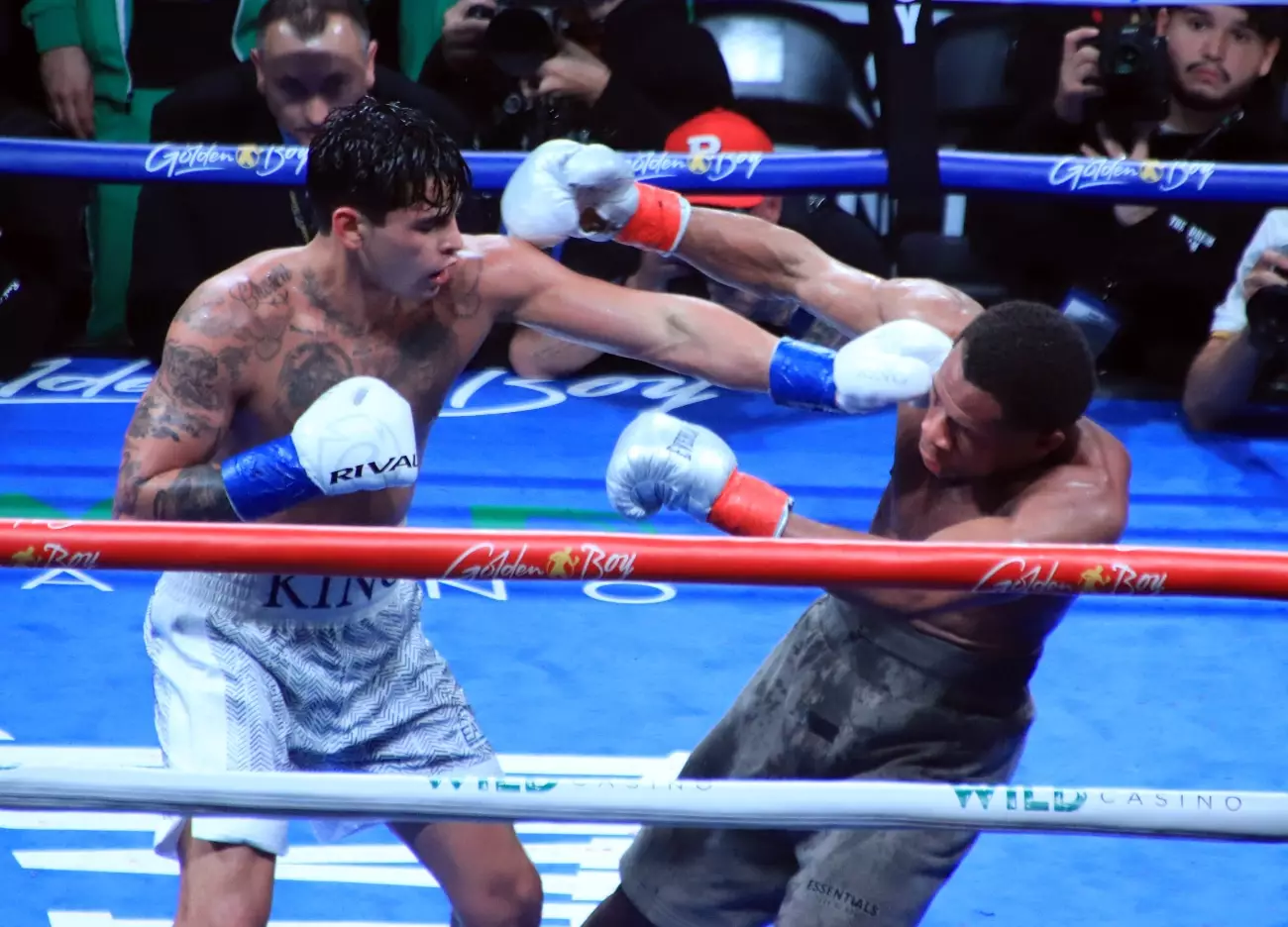In the competitive landscape of boxing, fighters often find themselves entangled not just in the ring, but also in legal battles that can overshadow their athletic careers. Ryan Garcia’s recent declaration regarding his rematch with Devin Haney highlights not just a personal rivalry, but also the complex interplay of legal and ethical issues that pervade modern sports. Garcia has expressed that before he can even entertain the idea of stepping back into the ring with Haney, the ongoing lawsuit filed against him needs to be resolved. This assertion is not merely a strategic maneuver; it reflects the gravity that legal disputes can impose on a fighter’s willingness to engage in what should be a straightforward sporting contest.
The lawsuit, championed by Haney and his father, Bill, is allegedly aimed at deterring other fighters from engaging in potentially performance-enhancing drug (PED) use. While their intentions may appear noble, the insistence on using Garcia as a cautionary tale raises questions about the motivations behind their actions. Is their primary goal to clean up boxing, or is it an opportunity to leverage financial gain while simultaneously pursuing a rematch with Garcia? The dual aims of seeking justice and profit complicate the narrative significantly, undermining their argument for moral high ground. García succinctly points out that the rematch hinges on them retracting their lawsuit—a stipulation that could redefine the terms of engagement in boxing, potentially impacting future athlete relations.
Adding another layer of intrigue to this saga is the looming consideration of financial implications. If Haney persists in his legal battle, he stands to gain a significant advantage from the lawsuit, which raises ethical concerns about priority. Would the financial compensation from a lawsuit outweigh the immediate athletic goal of securing a high-stakes rematch? Garcia’s insistence on the dismissal of the lawsuit indicates a desire for integrity in the sport. He may see the potential rematch not only as a chance for personal redemption but also as a platform to send a strong message about the importance of separating legal ramifications from competitive spirit.
The psychological and strategic components of their rivalry cannot be ignored. Garcia alludes to tactics he employed during their first match, suggesting that mind games were in play. The narrative of trickery adds a layer of drama surrounding their potential rematch, highlighting the lengths athletes may go in pursuit of victory. However, this dynamic also points to a fundamental truth in sports: the psychological aspects often rival physical performance. For Garcia, confronting Haney is not just a matter of skill in the ring but also navigating the psychological battle fueled by past incidents and current grievances.
As discussions about the future of their match unfold, one must wonder if a path to reconciliation exists. For both fighters, aligning their respective priorities—Garcia prioritizing the resolution of the lawsuit and Haney aiming for a lucrative rematch—may prove challenging. However, the sport of boxing deserves athletes who can rise above personal disputes and adhere to integrity. Only time will tell if Garcia and Haney can set aside their differences and pursue a rematch that serves both their careers and the sport’s betterment. A resolution to their back-and-forth could redefine not only their own legacies but also shed light on the broader implications for accountability and integrity in boxing.

